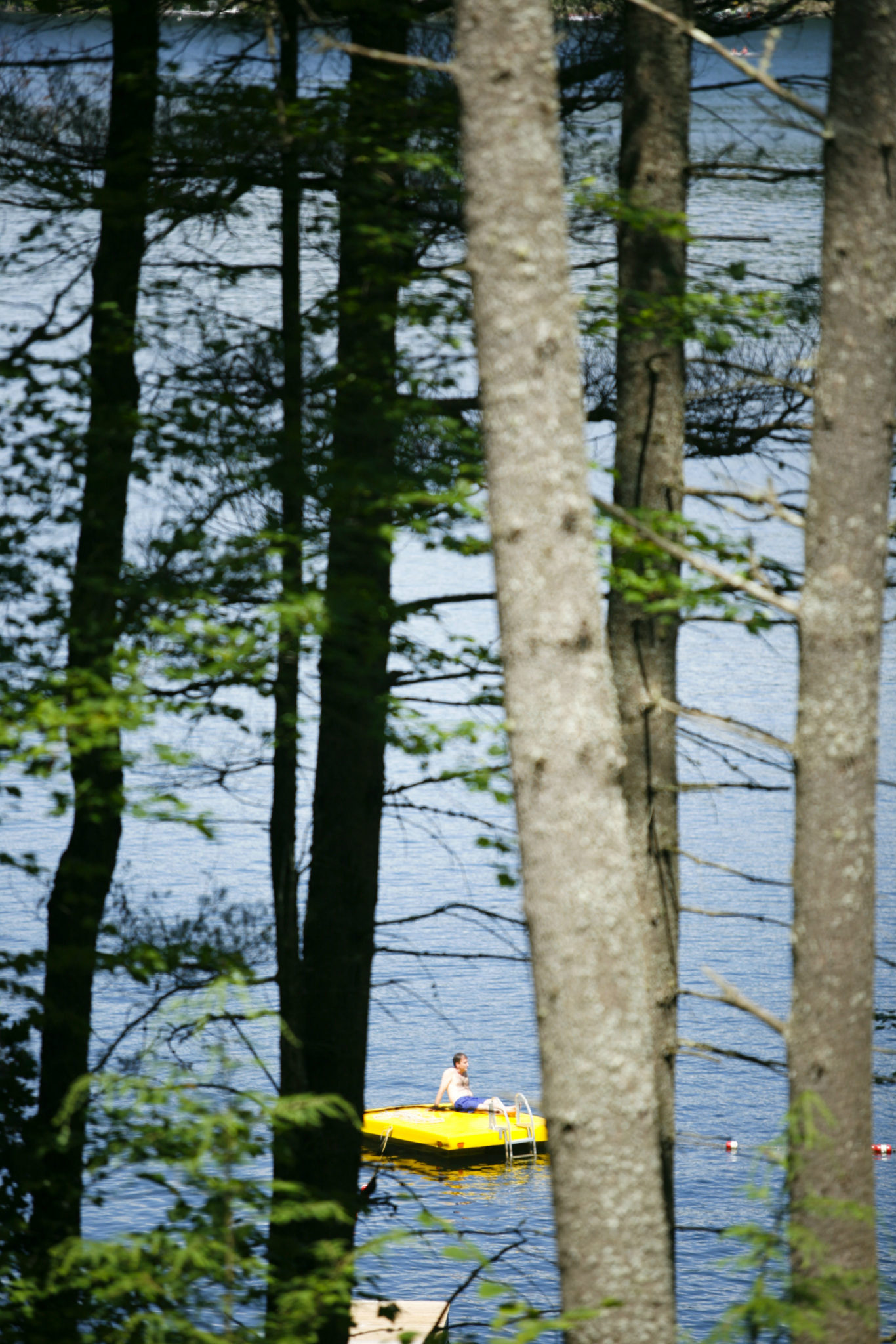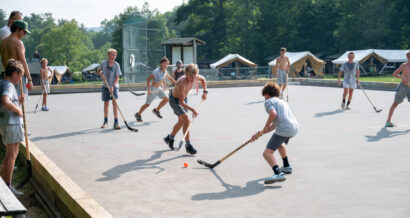 Article
Article

 Even in March, there is plenty of activity in Fairlee, Vermont. Although the population around Lakes Morey and Fairlee is certainly less than it will be in July and August, late winter brings School Program and weekend groups to Hulbert,and plenty of skaters and fishermen to the frozen lake surfaces. In spite of the presence of schoolchildren, skaters and winter enthusiasts, there is always a sense of quiet around our campuses, even in the height of summer when our hillsides and waterfronts are busiest. Those of us who spend all year in Fairlee sometimes take the quiet for granted, and relish returning to it after a trip “away.”
Even in March, there is plenty of activity in Fairlee, Vermont. Although the population around Lakes Morey and Fairlee is certainly less than it will be in July and August, late winter brings School Program and weekend groups to Hulbert,and plenty of skaters and fishermen to the frozen lake surfaces. In spite of the presence of schoolchildren, skaters and winter enthusiasts, there is always a sense of quiet around our campuses, even in the height of summer when our hillsides and waterfronts are busiest. Those of us who spend all year in Fairlee sometimes take the quiet for granted, and relish returning to it after a trip “away.”
Each June, when campers and counselors turn up on our five campuses, they begin to make a transition that is sometimes done reluctantly. In keeping with our philosophy about spending time in natural and simple settings, unplugged from 21st century electronics, we expect our participants and staff to either leave their gadgets at home, or, in the case of counselors, to turn them off for the duration of their time at camp. As we have blogged about before, most of us are under assault (frequently by choice) 24/7, from the multiple screens and gadgets in our lives.
At the end of 2011, Pico Iyer wrote about The Joy of Quiet for the New York Times, after addressing a conference of marketers in Singapore about “Marketing to the Child of Tomorrow.”
 “Since luxury, as any economist will tell you, is a function of scarcity, the children of tomorrow, I heard myself tell the marketers in Singapore, will crave nothing more than freedom, if only for a short while, from all the blinking machines, streaming videos and scrolling headlines that leave them feeling empty and too full all at once.”
“Since luxury, as any economist will tell you, is a function of scarcity, the children of tomorrow, I heard myself tell the marketers in Singapore, will crave nothing more than freedom, if only for a short while, from all the blinking machines, streaming videos and scrolling headlines that leave them feeling empty and too full all at once.”
Iyer might be slightly optimistic that our children would voluntarily put aside their cherished phones, iPods and games, to gain a moment of quiet, but adults who choose to turn off their gadgets find themselves more calm and engaged. Iyer quotes Nicholas Carr, (author of The Shallows: What the Internet is Doing to our Brain) “A series of tests in recent years has shown, Carr points out, that after spending time in quiet rural settings, subjects exhibit greater attentiveness, stronger memory and generally improved cognition. Their brains become both calmer and sharper.” Whether teen or adult, our tendency to skip from text, to photo, to email to web page makes it harder and harder for us to remain focused on a conversation, assignment for school or task at work.
 Although we sometimes lose prospective families who decide that the technology-free settings at our camps are not what they’re looking for, most families love that their children, and in some cases, they themselves at Ohana Family Camp, will get a break from the incessant chatter that fills our days. In another recent New York Times article, Resolved in 2012: Enjoy View Without an iPhone, Nick Bilton The New York Times technology columnist and blogger acknowledges that, “Spending a half-hour a day without electronics might sound easy for most, but for me, 30 unconnected minutes produces the same anxious feelings of a child left accidentally at the mall.” Although that may seem extreme for some, many of us know the feeling of fishing for the phone, just in case something has come in since we last checked. In fact, the phenomenon of technology addiction is on the rise.
Although we sometimes lose prospective families who decide that the technology-free settings at our camps are not what they’re looking for, most families love that their children, and in some cases, they themselves at Ohana Family Camp, will get a break from the incessant chatter that fills our days. In another recent New York Times article, Resolved in 2012: Enjoy View Without an iPhone, Nick Bilton The New York Times technology columnist and blogger acknowledges that, “Spending a half-hour a day without electronics might sound easy for most, but for me, 30 unconnected minutes produces the same anxious feelings of a child left accidentally at the mall.” Although that may seem extreme for some, many of us know the feeling of fishing for the phone, just in case something has come in since we last checked. In fact, the phenomenon of technology addiction is on the rise.
Parents of middle school and teenaged girls may be aware of the peril of another internet phenomenon: the Facebook profile photo. It is not simply enough to constantly upload photos of oneself and friends, but for many girls, how “good” they look in the photo is significant. Randye Hoder, a freelance writer and mother from Los Angeles writes in the Motherlode blog of the New York Times, For Teenage Girls, Facebook Means Always Being Camera-Ready. Hoder writes about girls whose preoccupation with how they look on Facebook, and how many “likes” their photos get, means that they focus on a kind of attention that most parents consider unconstructive, and more to the point, “More generally, the preoccupation with ‘How do I look?’ may well be getting in the way of living authentically.”
 The idea of authenticity is at the heart of what the camps and programs of The Aloha Foundation try to do. Whether one spends summer weekdays at Horizons Day Camp, seven weeks at one of our residential camps, a family reunion week at Ohana Family Camp, or a school program with Hulbert Outdoor Center, we emphasize a philosophy of simple, unplugged living and learning. Although campers will tell you that they love spending a summer in Fairlee because it’s “fun,” what underscores the fun is the opportunity for our campers and participants to have just enough quiet to hear themselves think.
The idea of authenticity is at the heart of what the camps and programs of The Aloha Foundation try to do. Whether one spends summer weekdays at Horizons Day Camp, seven weeks at one of our residential camps, a family reunion week at Ohana Family Camp, or a school program with Hulbert Outdoor Center, we emphasize a philosophy of simple, unplugged living and learning. Although campers will tell you that they love spending a summer in Fairlee because it’s “fun,” what underscores the fun is the opportunity for our campers and participants to have just enough quiet to hear themselves think.
Laura Gillespie is the Communications & Alumni Relations Manager at The Aloha Foundation, as well as an alumna of Aloha Hive and Aloha Camp, and has been a Horizons and Lanakila parent

